News
Examining The “We” Factor In Nigeria’s Public Outlook
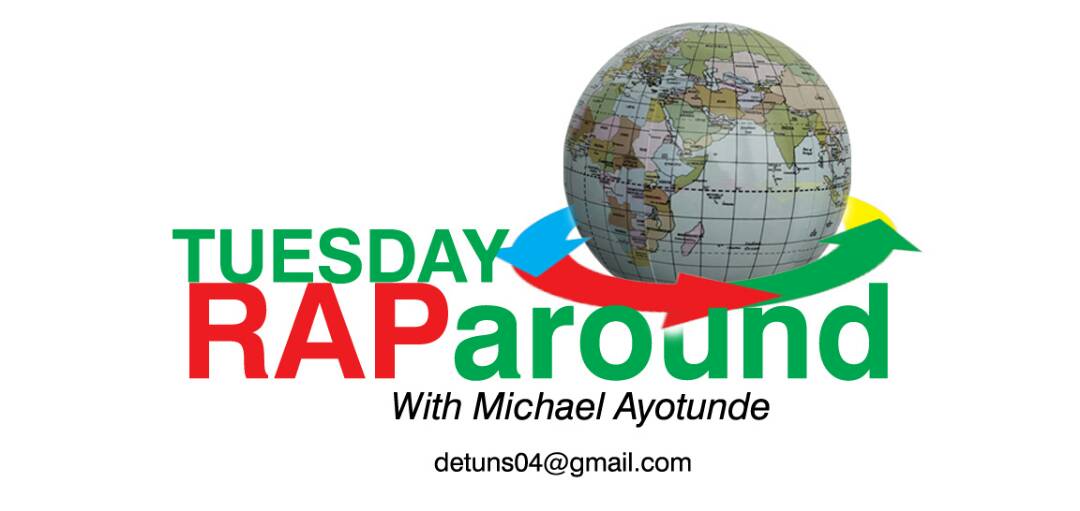
Examining the “We” factor in Nigeria’s public outlook
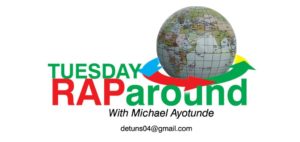
To say that Nigeria, as a nation, has come through thick and thin is an understatement.
From the formation period up to the present day, a lot has happened; many waters (both pleasant and otherwise) have passed under the bridge.
These challenges, indeed, come in diverse situations which watchers have monitored closely and ascribed varying meanings, nay interpretations to depending on the side of the divide from which things were being observed.
Going by the subjective nature of some postulations regarding the corporate existence of Nigeria as a nation, it is clearly difficult if not impossible to establish a defining correlation between the vision, aspirations of the nation’s founding fathers and the unrepentant opportunists – people who at different occasions found themselves on the corridors of power either through the gun or whatever means available. The class of people some analysts would naturally referred to as accidental leaders. Ironically, these set of people have the largest share of rulership in the country more than anyone else. Yet, the very essence of governance while their reign lasted was neither here nor there.
This is not disputing the fact that some accidental leaders the world over have written their names in gold. This is by virtue of their far-reaching policies and programmes of action which impacted immensely on the lives of not only the rich, both also, and majorly the downtrodden in the society.
After several attempts at defining and redefining the corporate existence and outlook of the country, it was realized that for a nation as big and heterogeneous as Nigeria, to be wholly managed and governed as an entity devoid of chaos and unnecessary commotion, there must be an instrument of instruction, power, authority or something like a guide that will clearly stipulate how the country can and should be governed. In their wisdom, this became expedient in a bid to encourage orderliness and good neighbourliness in the country.
Even though their utmost desire was to get this onerous task done, which is highly commendable, they failed practically and expeditiously as to how such fundamental instrument of power, authority should have been put together – an instrument that ordinarily and in all fairness should reflect the true and real picture of a nation, a country that was to become world’s largest conglomeration of black race.
This, no doubt, is one critical area where there have been series of arguments on whether military intervention in the Nigeria’s administration is a blessing or not.
Suffix to say at this point that there were the Independence Constitution of 1960; First Republic 1963; Second Republic 1979 before the highly controversial 1993 Constitution.
One question that will continue to beg for answers in years to come, is: While in the process of drafting the 1999 Constitution, why was it that relevant clauses and provisions in the 1963, 1975 Constitutions were not considered or incorporated? Or was it that it was meant to serve some interest that is why it was designed and drafted in the way and manner the whole episode was carried out?
Some people believe that the coming of the khaki boys was beneficial in some respect. This is due largely to notable achievements recorded while their tenures lasted. But come to think of it, the critical foundation they should have laid with a view to placing the country on an enviable pedestal, were ignominiously jettisoned and or mismanaged, and further sacrificed on an altar of selfish aggrandizement and disillusionment.
To this end, Nigeria as a nation has experienced several Constitutional crisis arising from clandestine politicking. Obviously, these political jobbers are in tune with the nation’s constitutional deficiency, and as such go all out to capitalize on such grey areas to promote their course – a thing that has never been in the interest of the nation.
The posture late legal luminary, Chief Rotimi Williams will forever remain indelible in our memory for many years to come. As soon as the much consulted and or cited Nigerian Constitution, the 1999 Constitution was put in place by the then military government, and seeing that it came with certain controversial words which many people found wanting, and distasteful, the legal icon was among those who wrote the Constitution off.
Specifically, the word “We” is used prominently in the Constitution. This they categorized it as an aberration. To them, how could a document which was the sole making of some inner clique turned out to be a general consensus?
Late Chief Rotimi Williams once described the 1999 Constitution as a “false document” due largely to its inherent contradictions. For instance, in its introductory part, the 1999 Constitution explicitly has the following:
“WE (emphasis on the choice of ‘We’) THE PEOPLE of the Federal Republic of Nigeria:
HAVING firmly and solemnly resolved (another notable discrepancy and grand deception): TO PROVIDE for a Constitution for the purpose of promoting the good government and welfare of all persons in our country on the principles of Freedom, Equality and Justice, and for the purpose of consolidating the Unity of our people:
AND TO LIVE in unity and harmony as one indivisible and indissoluble Sovereign Nation under God dedicated to the promotion of inter-African solidarity, and world peace, international co-operation and understanding:
DO HEREBY MAKE, ENACT AND GIVE TO OURSELVES (faceless attribution ‘Ourselves’) the following Constitution…”
In all intent, a document that was handed down by those who got to power through the back door cannot be said to be realistic, and a general consensus. It does not reflect the true dynamics of the country. The entire coinage with the express use of “We” is most unfortunate, and inherently inconsistent with the true principle of oneness and inclusivity.
From the foregoing, nothing can be more unrealistic and impracticable than the so-called 1999 Constitution which military egg heads, in collaboration with their secrete allies, forced down the throat of Nigerians. Whatever products emanating thereof amounts to gross illegality. What is the point having a government founded on illegality? It is nothing but sheer deceit and falsehood.
Having realized the said constitution is not genuine, what then stops us from constituting a workable version? Why do we allow the subjective version continue to dominate the better part of us, and in the process continue to further entrench the culture of confusion and disunity among our people – conditions that ordinarily a workable constitution should serve? Why are some elements so averse to the idea of constitutional amendment? Is the ongoing clamour for restructuring not an admittance of how faulty and impracticable the 1999 Constitution is?
If it has become so glaring that the 1999 Constitution is nothing but a fraud and an aberration, why would a serious-minded government not take that as a priority to right the notable wrongs in the said Constitution and in effect, return the nation back to her erstwhile glowing path – the path that naturally sees and recognizes everyone as equal, irrespective of one’s tribal, religious, socio-political leaning? The path that promotes the principles of equality, fairness and justice.
It is not surprising today seeing people who were once the chief promoters of true federalism in Nigeria, but are now opposing and castigating those who are asking for restructuring. What they failed to realize is that their antecedents are readily available in the public square. Now that they are in government, they have suddenly changed.
This, no doubt, is one major challenge bedevilling the Nigeria’s national life. This got me thinking sometimes – Is there anything in government that usually corrupt the mind of those leading us? Why do our people always turn to semi-gods once they attained power or position of authority, such that they become so blindfolded that they cannot see beyond the tip of their noses? Why is it that a good number of them always find it difficult to reason and be in tune with reality in the society?
Since pre-1999, a group of people concocted a great disservice to our fatherland, and nearly 18 years or thereabout, successive administrations in the country are yet to see any need to rework the calamitous “We pronouncement” in the 1999 constitution with a view to making it consistent with the reality of things in the country.
One indisputable fact is – those calling for restructuring and secessions here and there probably would not have been out there doing their respective bidding, if the 1999 or the Nigerian Constitution were to be all-encompassing and truly a reflection of the various elements/sections that make up the country.
The situation where leaders at all levels of governance in the country erroneously, either intentionally or unconsciously, make use of “We” when it is obvious they are speaking from their subjective state of mind, is no longer fashionable, and the earlier they realise it is a grand deception that no longer holds water, the better.
With the estimated population of about 200 million, our leaders need to come to term and face reality that Nigeria of today, is a complete departure from that of yesteryears and so, should know and affirm with all sense of responsibility that all we demand from them is service – and not how many flowing gowns or kaftan they have in their respective wardrobe; that the world over, people are taking public office to mean a test, trust and temporary assignment that must be delivered – and that occupying a public office is a privilege and not on merit; because there are hundreds of thousands better brains out there who, if given the opportunity to serve, would ultimately out-perform those currently traversing the length and breadth of Nigeria as leaders.
This is where the principle of ownership comes to bear – ownership with a sense of responsibility, accountability and resourcefulness. A leader that is true to his word would know that the opportunity to serve, first is a privilege; that it is an avenue to be a true representative of all; and a chance to add positively to the building blocks of the society – a thing that makes the society habitable for all.
-
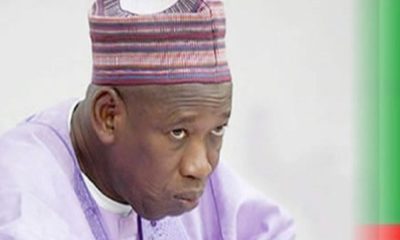
 News4 days ago
News4 days agoAPC National Chairman: Moves To Oust Ganduje Put Presidency In Quandary
-
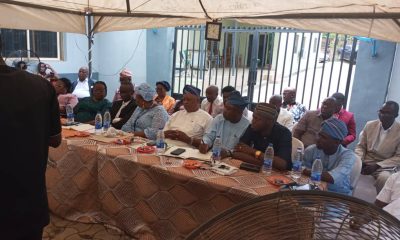
 News2 days ago
News2 days agoOsun RAAMP Opens Bid For Road Constructions Statewide
-
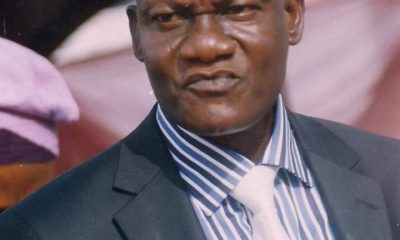
 News4 days ago
News4 days agoComrade Joseph Sangosanya dies at 67
-
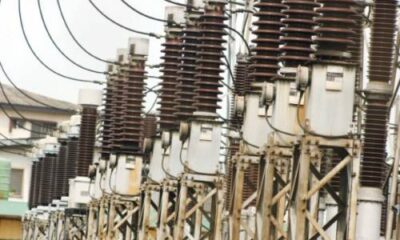
 Opinion2 days ago
Opinion2 days agoRegulatory Commission Must Wakeup From Slumber To Rescue EKEDC From The Shackles Of Dere Otubu By ADAPHAI


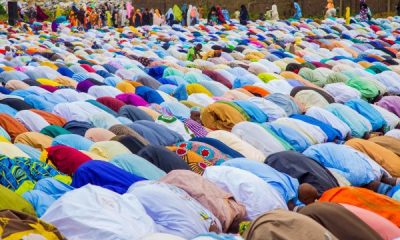

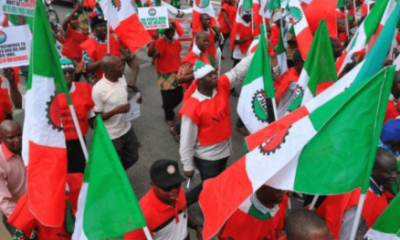

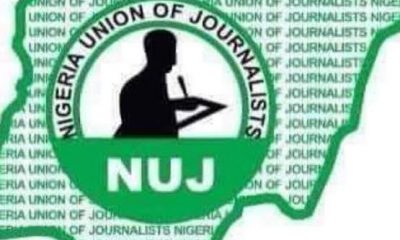



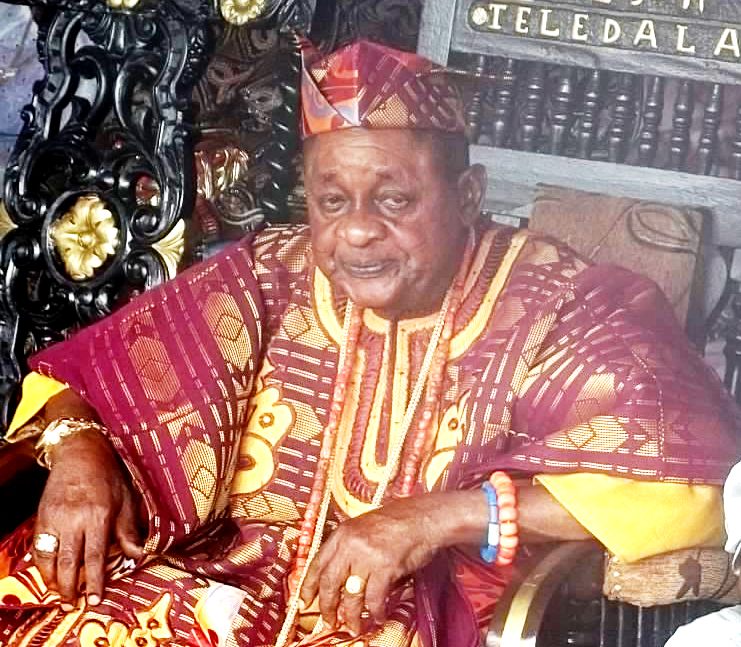
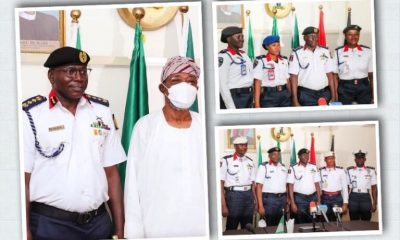



1 Comment